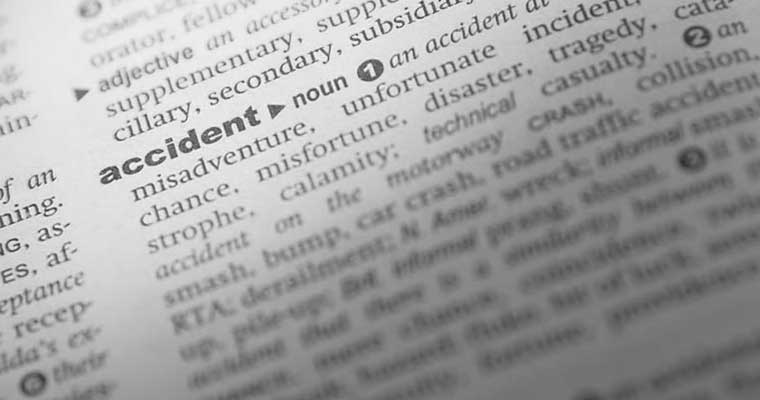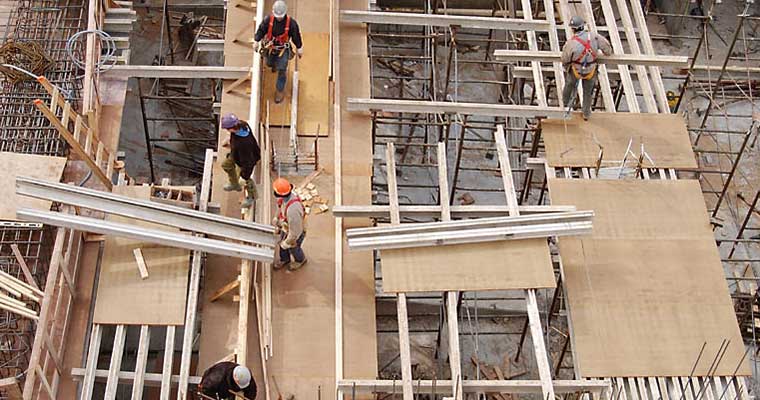Earlier, we explained why you should contact a lawyer promptly after an injury-causing incident, and we offered some specific illustrations of the reasons why this is especially true for medical malpractice cases (we often call them “patient safety” cases) and motor vehicle and truck accident cases. Experienced medical malpractice lawyers and experienced truck accident lawyers know this.
Read Part I: How Long Do I Have to Bring a Lawsuit? (Pennsylvania / New Jersey)
In this article, we will talk about some other examples of when to contact a lawyer, and why. All of the examples overlap, and the simple central point remains the same: the sooner you consult with an experienced lawyer, the better off you will be from a legal perspective.

Premises Safety Cases (“Slip and Fall”)
Related Articles
- Slip and Fall – Dangerous Conditions – Premises Liability
- Premises Liability – The Rita’s Water Ice Philadelphia Tragedy
Sometimes these cases are dismissed as being particularly easy or straightforward, but lawyers who are experienced in handling them know better. They can involve questions and challenges that are as complex and challenging as any other kind of case.
Surveillance cameras are everywhere, particularly in stores, in malls, and on streets; videos from these devices can provide undeniable evidence of how an accident happened. They can also provide irrefutable proof of everything a Defendant did to create a dangerous condition, and also everything “at fault” party failed to do. They might show, for example, that a spill remained on the floor for hours. They also might show that other people slipped and fell, or slipped and almost fell, at a particular spot.
Surveillance videos do not, however, last forever. Usually, the length of time is determined by the amount of memory storage available on the recording unit. Once the space on the memory chip is full, a new video is simply recorded over the earlier videos. While every system is different, there are some general rules: home security cameras store about a week or so of footage; small and medium sized businesses typically store about 30 to 90 days; larger businesses are more likely to retain video for a few months; and businesses which handle large amounts of cash, including casinos and banks, often store footage for anywhere from 6 months to a year. But none of these sources automatically keep video footage indefinitely.
If someone is injured in a store and the incident is reported, the store will often “pull,” set aside, or otherwise save the footage that captured the incident. They will not, however, generally save footage from the rest of the day, unless they have been specifically asked to do so by a lawyer.
Now, you might think the video of the incident itself is enough. But that’s only true if you are thinking about the few seconds before an incident and the incident itself. That kind of narrow framing always helps the wrongdoer, and not the injured person, because it takes everything the wrongdoer did wrong out of the picture. Experienced trial lawyers who have been at this a while know that a dangerous condition like a slippery floor is rarely the result of a single, isolated oversight. Rather, it is the result of a store’s failure to have reasonable and safe policies; a failure to train employees about those policies; a failure to enforce the policies; and–most of all–a failure to give individual employees the time and space to do their jobs the right way.
What does this have to do with video surveillance? Well, most stores have policies that look good on paper; something saying that personnel will regularly patrol the store for hazards and immediately correct every hazardous condition they come across. Video from an entire day, weekend, or even week can sometimes show that these inspections did not in fact occur.
You can really see this in some of the big-box stores like Walmart, and in large home improvement stores like Lowe’s and Home Depot. They may have wonderful employee policy manuals saying things like “always keep walkways clear” and “always close off the entire aisle if you are going to use a lift” and “make sure to always restore lumber to its proper location,” but if you have been to one of these stores on a busy weekend, you know that is not always the case. Pieces of lumber, large and small, can jut out into aisles all akimbo; rolling staircases can clog aisles; and motorized lifts can sometimes move down aisles where customers are trying to walk. The point is not that hard-working employees are irresponsible or lazy; rather, the point is that they are not given the time, space, and equipment to do their jobs properly. Video surveillance can point out just how widespread these problems are.
When a store preserves video from only a few minutes or seconds before an incident up to the incident itself, video from the rest of the day may simply disappear, which means the store can tell the jury about their excellent safety program without fear of being confronted by video evidence showing otherwise. Once you have retained a lawyer, the lawyer can stop the store from going forward with this kind of evidence destruction.
The events of the pandemic over last year have also reminded us of another reason to act promptly: things change. Stores go out of business or are bought by someone else. Businesses undertake major renovations. Fires and floods might be rare, but they do happen. Any of these things can eliminate evidence that you will need to get full value for your case from a jury.
Employees also quit their jobs, or get fired, or get laid off for a whole host of reasons. The farther out from an incident you get, the more likely it is that evidence or witnesses get lost or go missing. Why do we care? Because once someone is no longer an employee, their status under the Rules of Evidence (which govern trials) and the Rules of Civil Procedure (which govern the pretrial fact-finding process) change. It can be frustrating sometimes that the things a former employee says in a deposition may not automatically be read or played into evidence at trial as admissions by the Defendant, simply because the deposition did not occur until after the employee had left the company. Don’t get us wrong here–the combination of an over-prepared lawyer and an underprepared witness can sometimes generate remarkable admissions in a deposition, and there are plenty of ways to still use helpful deposition testimony from a former employee. The point is simply that delay can make things more complicated than they otherwise need to be.
Construction Cases

Related Article
Construction sites demand the greatest possible degree of attention to safety. Any construction site, from the smallest home addition to the largest skyscraper, is a carefully choreographed ballet of activities, often involving many different contractors, subcontractors, managers, engineers, and architects. Even with the most highly skilled and well-intentioned companies, dangerous conditions occasionally arise, and these conditions can sometimes cause catastrophic, devastating injuries.
Documenting the conditions that exist at the time an accident or injury occurs can be difficult because construction sites are, by their very nature, works in progress. A high-rise floor of a building under construction might be without safety rails in the morning, when a fall occurs, and might have rails in place by the end of the day. An unmarked hole in the floor, lurking and waiting for a scissor lift to turn over, might be covered or marked the day after a horrible accident occurs. The number of examples here is of course as great as the number of things that can go wrong on a construction site if people don’t pay careful enough attention to safety–in other words, a very big number. Lawyers who have experience handling construction accident cases understand the importance of getting an investigator out to the scene of an incident as soon as possible and to make sure that a complete record is available for use down the road. If the accident is a serious one, an investigator for the general contractor and perhaps others might take pictures and document conditions, but it makes little sense to rely completely on the same company which created the dangerous condition to document its own wrongdoing.
In addition to the inherently impermanent nature of any construction site, the same considerations referred to above also apply. Surveillance videos get overwritten. Text messages and emails may be deleted, out of ill-intention, or by oversight, or by some combination of both. Either way, it is important to get a lawyer involved as soon as possible to conduct a timely and thorough investigation.
Sex Assault and Sex Abuse Cases
McLaughlin & Lauricella handles these cases. The same considerations spelled out above apply, although it is probably fair to say that the need to prevent illegal destruction of electronic evidence, like social media posts, applies with unusual urgency here.
But there’s a more important and more fundamental point about these cases. It can be hard to capture the full nature and extent of the life-long psychic wounds that can be inflicted by predators and the institutions that enable them. It is simple human nature that we sometimes try to hide the true nature of our injuries even from ourselves, even if that might not be the healthiest response over the long arc of a lifetime. Lawyers who handle these cases know the importance of survivors getting the right help, at the right time, from the right professionals. More often than not, the right time is sooner rather than later. Lawyers with experience in sexual assault and sexual abuse cases often have the wisdom to share information and coordinate their efforts with other similarly situated lawyers. This approach is drawn from experience with these extremely challenging and difficult cases over decades of legal practice.
The Bottom Line – When to Contact a Lawyer
If you are wondering whether or not it is time to hire a lawyer, the answer is almost certainly yes. If it is a personal injury case involving significant injuries–whether it’s a car accident, a truck or tractor trailer accident, a patient safety case, a construction case, a premises liability case, a sex abuse case, or any other type of personal injury matter, please reach out to lawyers with extensive experience handling these kinds of cases. With every passing day, information that you might need to tell the full story about what happened and why could be disappearing.
The lawyers at McLaughlin & Lauricella, P.C. have experience with personal injury cases involving automobile crashes, medical malpractice, trucking accidents, and sexual abuse. If you think you have been injured as a result of the conduct of another person, contact McLaughlin & Lauricella by email for a free consultation or call us at 1-855-633-6251.



